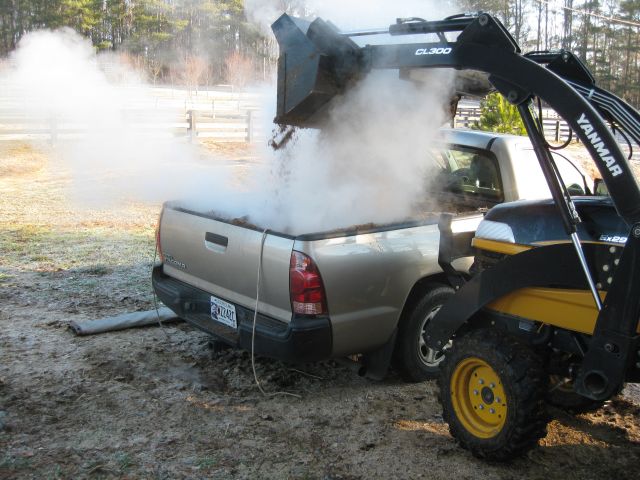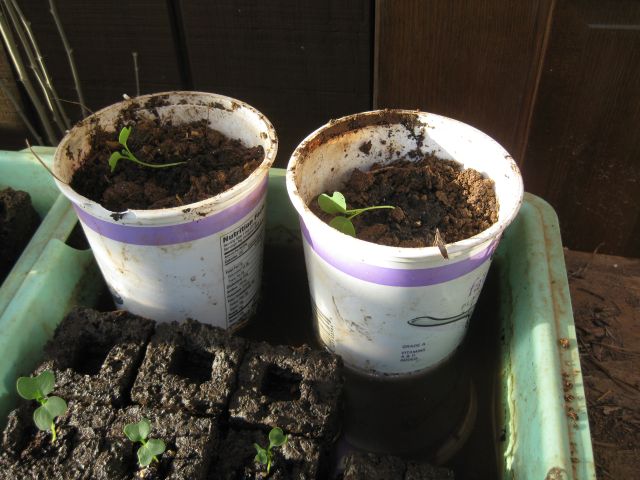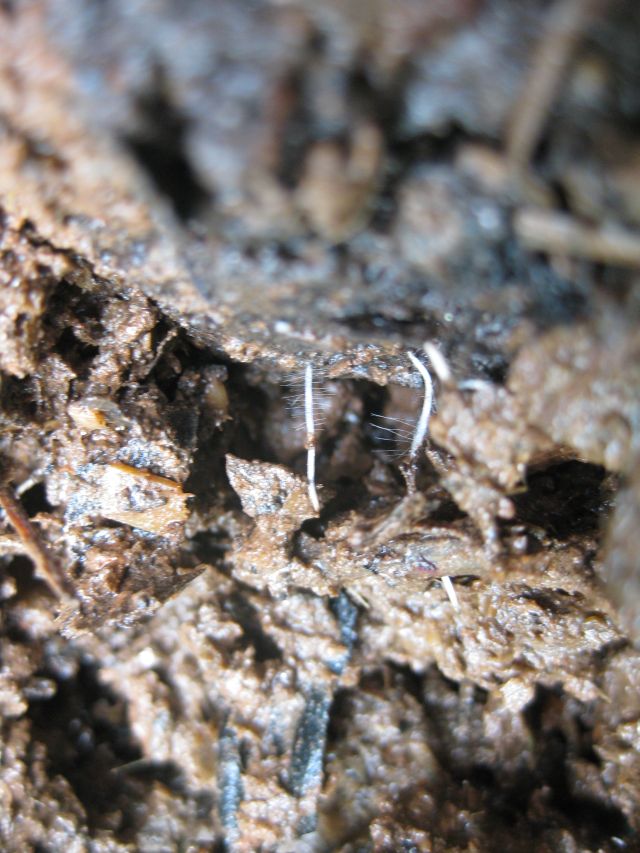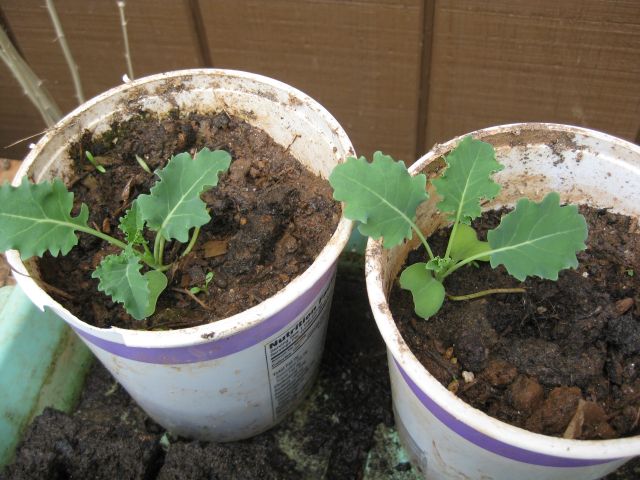In March 2012 I performed a simple test to get some confidence that the horse manure I was collecting was not harmful to my plants. The test indicated that my plants would not be harmed but the effect on worms was undetermined. I had not visited the stables for some time until early this January I headed their way. One of the immediate changes was the password controlled electric gate. The new owners, a husband and wife team were welcoming, and when I mentioned I usually paid $20 per load of horse manure, the husband fired up his Yanmar tractor and we together headed for the manuring area. The previous owners used a John Deere tractor (30hp) which was occasionally aggravating. Kenny says he is very happy with his Yanmar. Coincidentally, my Takeuichi bobcat has a Yanmar engine with untold hours (the hour gauge stopped working at 2,500 hours) and it works very well.

As the manure was being dumped into the pickup bed I noticed that they now use shavings in the stalls instead of straw/hay. I preferred the latter though I am sure the shavings are cheaper.

I decided to again test the manure. I filled one yoghurt container with manure and the other with compost and inserted a 2″ soil block containing a kale seedling into each, plus a 3″ worm. And waited about a month. And then examined the contents. Both seedlings had grown at about the same rate and I was pleased to see their roots had extended well beyond the soil block so they had sampled their surroundings.

And as for the worms – both had disappeared. I should have learned my lesson and included other soil life such as centipedes and millipedes. Worms do tend to wander.

So where does this leave me. The Feb/Mar 2013 issue of Mother Earth News has an article “Killer Compost Update Herbicide Damage Still a Major Problem”. The gist is that persistent herbicides remain potent in composted manures and will damage crops to which they are applied. The article did not focus on insecticides applied to pastures or dewormers or other chemicals given to livestock.
I recently read “Bringing Nature Home” by D Tellamy who makes a compelling case that we should protect and sustain all insects, including herbivore insects which are the ones which eat my vegetables. His view is that these insects and particularly their larvae, provide food to predator insects and birds and thereby promote diversity of these species. The book is very well written and castigates alien plants not only because they are invasive but also because it takes a long time for native insects to adapt to eating them and so they provide little nutrition and without natural enemies become more invasive. To test whether the horse manure is safe for insects I will now add centipedes and millipedes of which I have an abundance to the two containers and see how they fare.
